

University of Maryland

CONNECT WITH QUEST
questhonors@umd.edu
301-405-0534
go.umd.edu/QUEST QUESTumd QUESTumd QUESTumd LINKEDIN QUEST Honors Program at UMD blog.umd.edu/questpress






University of Maryland

CONNECT WITH QUEST
questhonors@umd.edu
301-405-0534
go.umd.edu/QUEST QUESTumd QUESTumd QUESTumd LINKEDIN QUEST Honors Program at UMD blog.umd.edu/questpress



The QUEST (Quality Enhancement Systems and Teams) Honors Program is a three-year program for University of Maryland undergraduates studying business, engineering, and/or science.
Through our five-course curriculum, students complete experiential learning projects and gain valuable teamwork, communication, and problem-solving skills to prepare them for their futures. Now in our 31st year, QUEST has become a mainstay at the University of Maryland, College Park, providing a unique opportunity for students who are interested in multidisciplinary, hands-on learning experiences.
To foster a dynamic learning community that makes a recognized difference for students, the University, and partnering organizations through a commitment to crossfunctional collaboration, creative problem-solving, and systems thinking. Participation in the QUEST Honors Program stimulates a belief in life-long learning and employing collaboration to shape and impact the future.

QUEST students are from the Robert H. Smith School of Business, the A. James Clark School of Engineering, and the College of Computer, Mathematical, and Natural Sciences. In a highly competitive process, 90 new “QUESTees” are admitted each spring during their first year at UMD.
QUEST projects focus on real challenges facing organizations and society today. Students apply total quality tools, design, and systems thinking principles and engage in customer-driven initiatives. Project outcomes develop real and immediatelyapplicable innovations that improve processes, drive productivity, and reduce costs for clients.
QUEST students work in multidisciplinary teams on client projects and are fully comfortable navigating team dynamics, working with individuals with diverse skill sets and talents, and inspiring an environment for collaborating on ideas and tactical strategies.
QUEST is a dynamic community of learning where students, faculty and staff, alumni, corporate partners, and University colleagues contribute to and benefit from the interactions and lessons learned.
FACULTY DIRECTOR STAFF

Dr. M. Gisela Bardossy Faculty Director

Jessica Roffe Assistant Director

Emily Marks Program Coordinator
AFFILIATED FACULTY


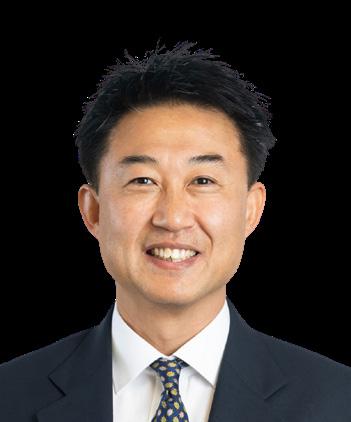




I am delighted to present to you the 2024 QUEST Annual Report, marking another remarkable year of growth and achievement for our program. As we reflect on the past year's successes, I am filled with gratitude for the support and dedication of each member of our vibrant community.
Foremost, I want to thank our students. During my first year as Faculty Director, I have come to appreciate the transformative power that the QUEST community instills in our students by providing them with meaningful and impactful experiential learning opportunities. During their time with QUEST, students are challenged to deliver value to different types of clients, to learn from different industries, to practice their professional and soft skills, and to integrate their technical knowledge across business, engineering, and science. Students not only embrace those challenges but go beyond, actively seeking opportunities to innovate, collaborate, and excel, thereby enriching the program's learning environment. They take leadership roles in our social clubs and service initiatives to enhance the program. For all of that, I’m truly thankful for their commitment to the program's success.
I also want to extend my deepest gratitude to our external partners, faculty advisors, and staff for their dedication and commitment. Your commitment serves as a testament to the strength of our collective endeavor. Our collective efforts have once again propelled QUEST to new heights, reaffirming our commitment to providing a transformative learning experience for students across disciplines.
Throughout the past year, we have celebrated significant milestones and embraced exciting changes. We welcomed esteemed faculty members, expanded our global reach through study abroad opportunities, and witnessed unparalleled interest in our program with over 400 applications.
Looking ahead, I am inspired by the boundless potential of our program and the opportunities that lie on the horizon. As we chart our course for the future, I am committed to fostering an environment of inclusivity, creativity, and excellence, where students are empowered to realize their fullest potential and make meaningful contributions to society.
I invite you to explore the pages of this report, filled with highlights from the past year and glimpses of our shared vision for the future. Together, let us continue to push the boundaries of learning, innovation, and collaboration, as we shape the next chapter of the QUEST experience.
Thank you for your ongoing support and partnership. Here's to another year of inspiration, discovery, and growth.
Warm regards, Dr. Gisela Bardossy
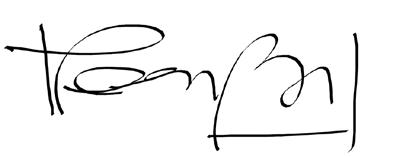
The University of Maryland strives to reimagine learning by taking students beyond the classroom and into our communities. For over 30 years, the QUEST Honors Program has been a model for all programs looking to enhance experiential learning and bring hands-on projects into the curriculum.
High-achieving undergraduate students across business, engineering, and science work together in interdisciplinary teams to provide creative and holistic solutions to real-world challenges brought forward by a wide variety of clients. The appreciation of those partners is most evident in them returning, year after year, with new problems and challenges for QUEST teams to tackle. Most importantly, these projects enhance the student experience by empowering them with rich opportunities to explore their passions and to improve their career readiness.
As deans, we would like to express our deep appreciation of QUEST’s students, alumni, staff, faculty, corporate partners, parents, and benefactors, who are the pillars of QUEST’s success. We look forward to your continued participation in the future!
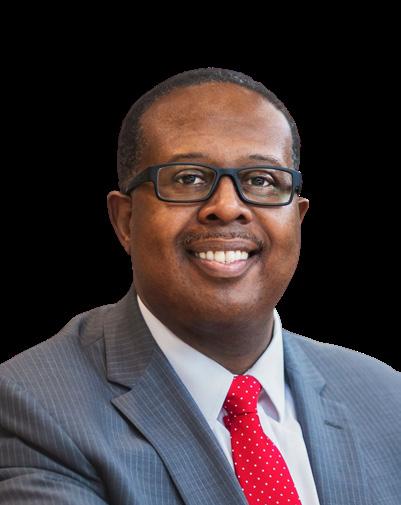


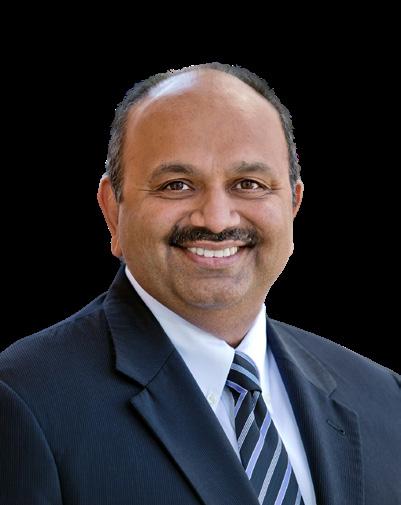








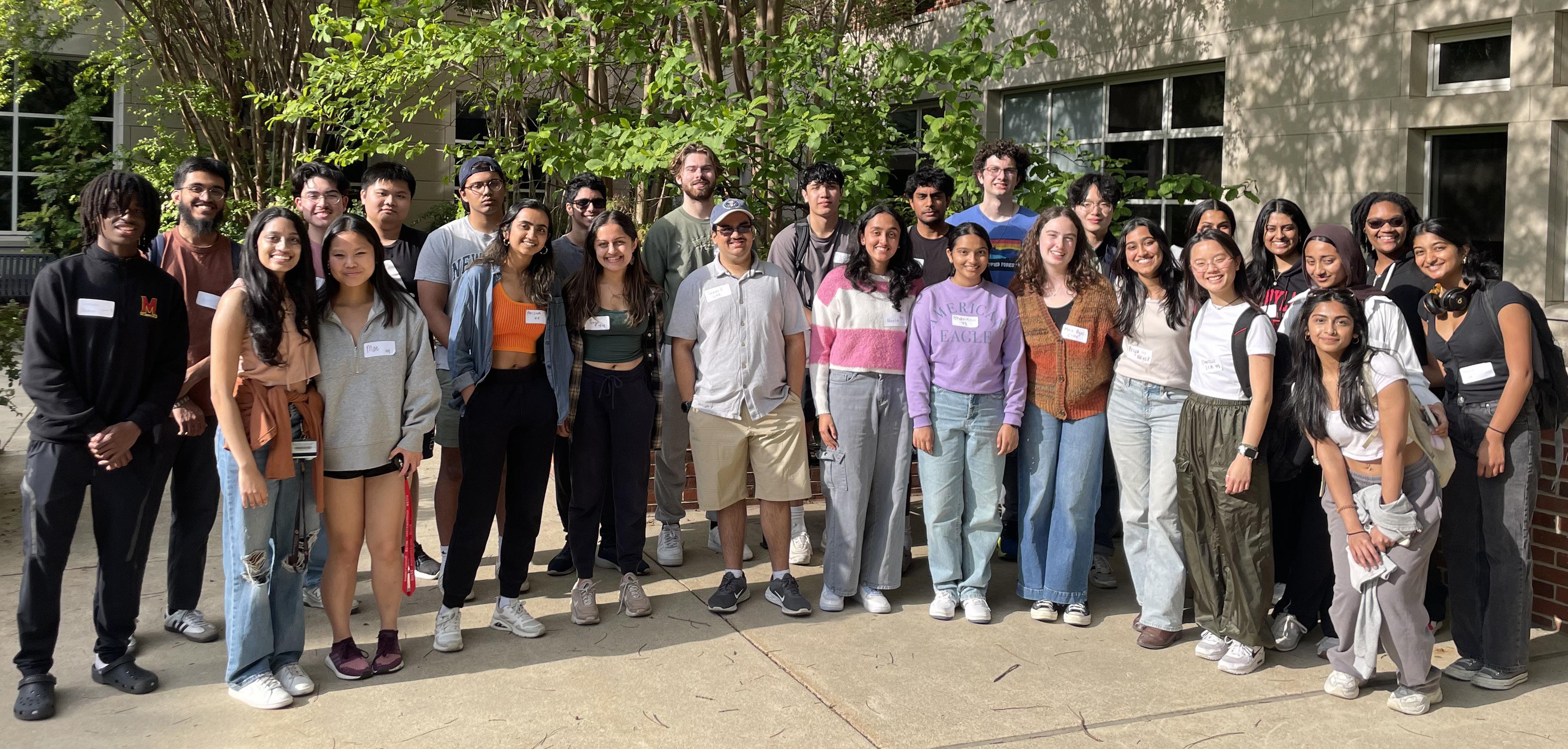
456 applicants
149 interviews
A record-breaking 456 first-year students applied to QUEST this spring (a 48% increase from last year!), making this the most selective year in QUEST’s history by far. This achievement highlights QUEST’s growing reputation across campus and the dedicated efforts of the students in our QUEST Recruiting student organization, who worked diligently to attract UMD’s finest business, engineering, and science students. Congratulations to all of our new students in Cohorts 43 and 44! We are excited for you to begin your QUEST journeys this upcoming fall and cannot wait to see what you will accomplish.
90 new students
3.77
College of Computer, Mathematical, and Natural Sciences
Robert H. Smith School of Business
A. James Clark School of Engineering
QUEST Orientation (or “QUEST Camp”) has been a tradition in the program since its inception over 30 years ago, and this year was no exception.
We were excited to officially welcome Cohorts 41 and 42 into the program during their respective orientations in August 2023 and January 2024. There is always a friendly competition between the cohorts about who had the better QUEST Camp experience, but both the summer and winter orientations were unique and fun in their own ways.
Cohort 41’s August orientation was held at Sandy Hill Camp and Retreat Center in North East, Maryland, which was exciting because it was QUEST’s first time there. Once we arrived at camp, students participated in a fun icebreaker activity where they met their BMGT/ENES190H teams and their mentors for the first time. After students found their teams, it was time to launch into a day packed full of activities. The students practiced their teamwork skills on the low ropes course, showed off their dancing and acting talents during improv, and got a taste of the first BMGT/ENES190H project during the pilot products activity. During their downtime, students had fun playing on the outdoor volleyball, basketball, and gaga ball courts!
QUEST returned to YMCA Camp Tockwogh in Chestertown, Maryland for Cohort 42’s orientation in January 2024. Maryland had just seen a snowstorm, so the camp looked beautiful, and the students definitely bonded over their walks to the dining hall in the snow. Cohort 42 excelled at all of the daytime orientation activities and then finished out the night with team name skits and s’mores by the fire. It was wonderful to see the students become close over the course of just two days.
We look forward to seeing these cohorts bond even more throughout their QUEST journeys!

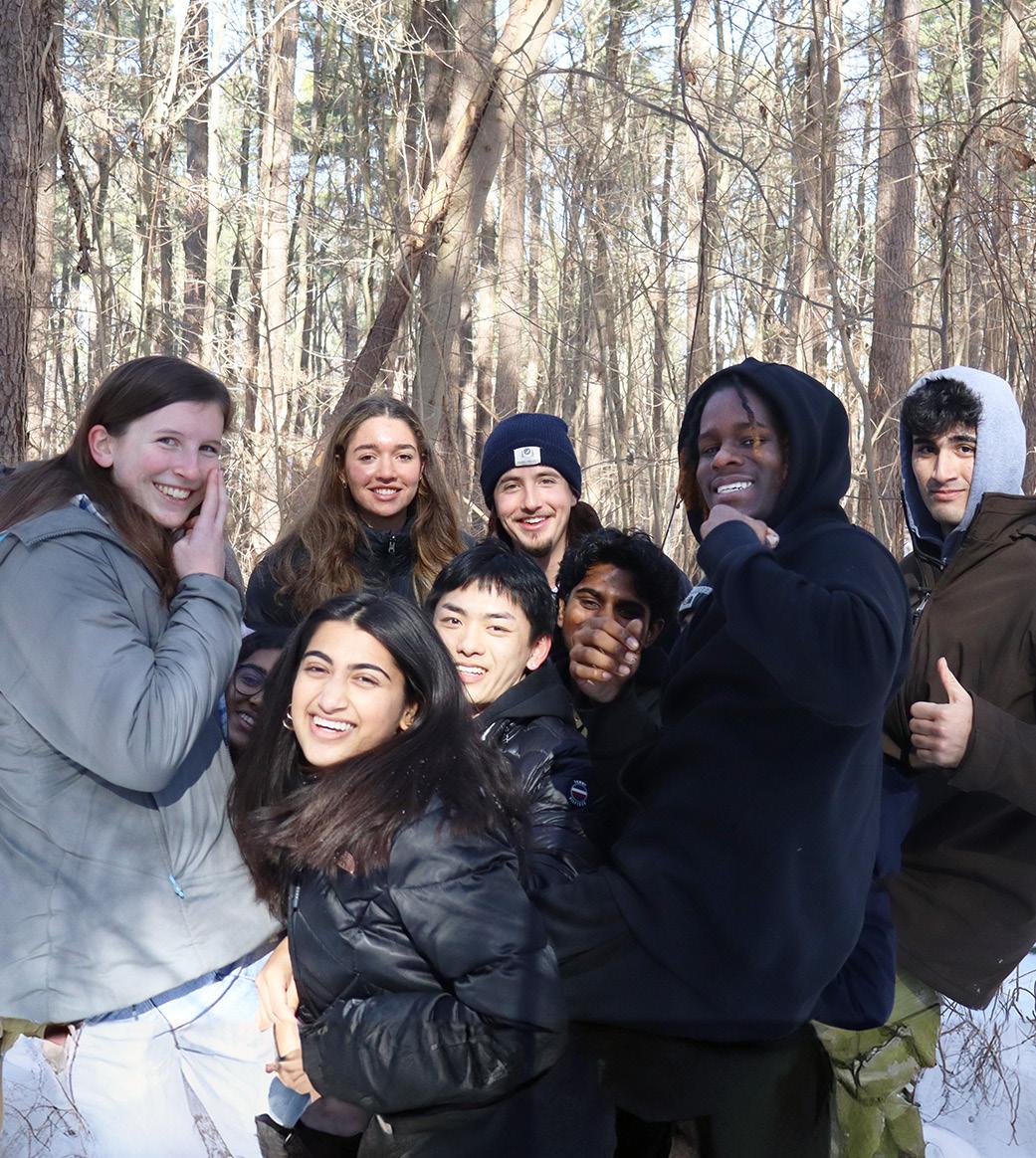
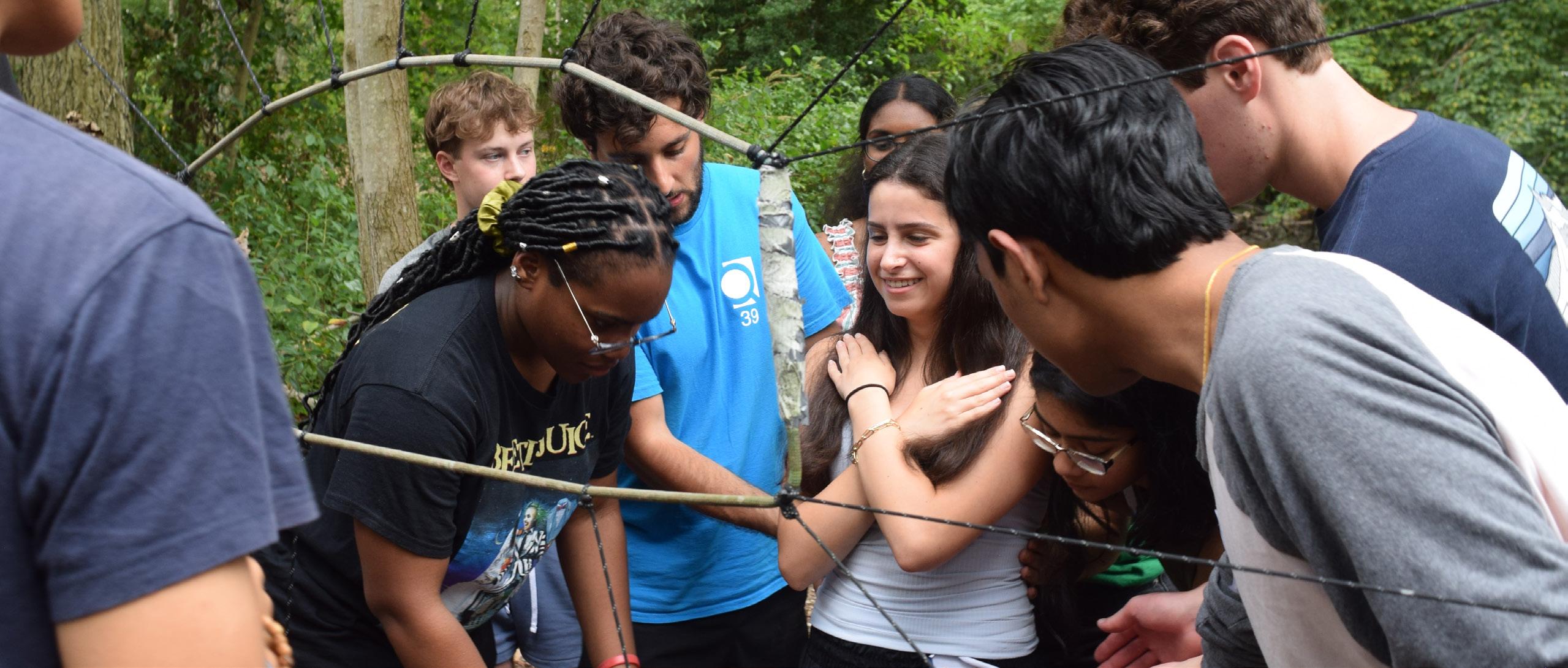
QUEST welcomed four new members to our leadership team (the “Quality Guild”) this year.
Dr. Gisela Bardossy is the QUEST Faculty Director as of August 2023. She teaches our data analysis course and co-teaches our capstone course. Dr. Bardossy is an Associate Clinical Professor in the Decision, Operations, Information and Technologies Department at the Robert H. Smith School of Business.
Her background in business, engineering, and science make her a natural fit for QUEST. While earning her bachelor's degree in Business Administration at the Universidad Nacional de Córdoba, Dr. Bardossy also earned a B.S. in Industrial Engineering from the Universidad Catolica de Cordoba and received a gold medal for the highest GPA and performance in her cohort. Because it was not possible to double major at the time, she attended one university during the day and the other in the evening.
Dr. Bardossy went on to earn her Masters in Mathematical Sciences at Clemson University and her Ph.D. in Management Science at the Robert H. Smith School of Business at UMD. Dr. Bardossy has been teaching both undergraduate and graduate students at Smith since 2018. She has enjoyed her first year with QUEST immensely, stating, “The QUEST students are unlike any I’ve worked with before. They are incredibly motivated and hardworking and what impresses me the most is their ability to listen and incorporate feedback in order to improve their final solutions.”
Dr. Ben Huffman also joined the QUEST team as the lead instructor for our introductory course, BMGT/ENES190H: Introduction to Design and Quality. Dr. Huffman is an Assistant Clinical Professor in the University of Maryland's First-Year Innovation & Research Experience (FIRE) program and has an extensive background in design thinking and innovation.
QUEST also welcomed back two alumni to the program this year in a teaching capacity. Joshua Cocker, mechanical engineering ‘19 (Cohort 27), and Dr. Fox Troilo, business decision information systems ‘04 (Cohort 9), co-taught our introductory course, BMGT/ENES190H: Introduction to Design and Quality, in the fall and spring semesters, respectively.
Cocker is a Lecturer in the A. James Clark School of Engineering’s Keystone Program. “Prior to teaching 190H, I primarily taught the first-year engineering course at UMD, ENES100: Introduction to Engineering Design,” Cocker said. “Once I stepped into 190H, I got to work with many of my former ENES100 students again. Being able to check-in with these students as they progressed on their academic journeys was an incredibly rewarding experience. It's so uplifting to see the continued excellence our students exhibit throughout their time at Maryland!”
The QUEST students are unlike any I’ve worked with before. They are incredibly motivated and hardworking and what impresses me the most is their ability to listen and incorporate feedback in order to improve their final solutions.”
M. Gisela Bardossy Faculty Director


Dr. Troilo is the Managing Director of the Higher Education Research Advisory (HERA) at Hanover Research and jumped at the opportunity to become an adjunct instructor for QUEST. “Coming back to teach in QUEST has been incredibly special,” he explained. “When I look back on my time in the QUEST program as a student, I'm struck by how much of my experience set me up for success throughout my career in ways I didn't even realize until much later. As such, the opportunity to contribute to the growth of QUEST and give back to the program that enriched me so much has been a wonderfully rewarding honor."
The QUEST Lab found a new home this year in the former Public Policy wing of Van Munching Hall. The old QUEST Lab is in the process of becoming a state-of-the-art “TERP” classroom, perfect for teamwork and collaboration. This new classroom will be home to many future QUEST classes. Meanwhile, the new QUEST Lab space, located at 1113 Van Munching Hall, has all of the same perks as the former space plus additional windows and a two-tiered floor plan. We were even able to hold QUEST interviews directly in the lab thanks to the way the new floor plan is laid out.
With our move, we also obtained a large conference room across the hall and two smaller conference rooms for team meetings as well as faculty and staff storage. Our staff also moved to new offices next to the lab, joining a hallway with staff members from other specialty business programs such as Smith Business Leadership Fellows and Interdisciplinary Business Honors.
Ege Korkmaz, aerospace engineering ‘25 (Cohort 39), is a frequent visitor to the new lab. He shared,“The QUEST Lab has undoubtedly been my favorite place on campus to study, and it’s also where I’ve made new friends with QUESTees from other cohorts. It is a great space to share, relax, socialize, and get work done at the same time. [The QLab] has a cozy ambiance with a lot of colorful and inspirational posters, snacks and drinks, big windows with a lot of natural light, and smiling faces whenever I stop by!”
This summer, we have plans to improve the QUEST Lab even more with the addition of movable whiteboards, updated furniture, improved event materials, and more! Our goal is to create a dynamic and collaborative environment that fosters innovation, teamwork, and opportunities for connection between our students.




QUEST students take four required courses with their cohorts in addition to one elective. Students who complete all five courses earn a notation on their transcript and gain skills in teamwork, process improvement, systems thinking, product design and development, data analysis, and oral and written communication.
In the first QUEST course, students focus on creative problem solving and teamwork. Students learn to work in multidisciplinary teams while designing solutions for two projects. Along the way, they learn and apply methods of design thinking, new product development, project management, quality management, and process improvement. Additionally, they learn how to prepare and deliver multiple types of presentations which they practice through a product pitch, poster session, and client briefings.
In the first project, teams embraced the principles of design thinking to tackle the intriguing design challenge of biomimicry. By utilizing quality design tools, teams were tasked with developing a product or service that drew directly from the efficiencies and adaptations observed in the natural world.
For the second project, teams used lean six sigma methods and design thinking to help a campus client improve a process. The teams not only learned about process improvement, but they also practiced consulting with a client. The teams were highly engaged with their clients and delivered valuable recommendations. Our clients included the Division of Student Affairs, Office of Student Orientation and Transition, UMD Athletics Marketing Department, Department of Computer Science - Undergraduate Advising, and more.
While this first QUEST course introduces students to design and quality through problem solving and teamwork, students come away with much more. Students appreciate the experiential learning methods—learning by doing—and say that the course expands their thinking and helps them appreciate new perspectives and see the world in new ways.
To tackle the first 190H project, Cohort 42 team QUESTward Expansion decided to create a light bulb that mimics the circadian rhythm of a sleeping human. Their Rhythm Radiance light bulb has sensors that automatically adjust the lighting intensity and hue in a room based on the time of day. This product takes cues from the natural world and human physiology to optimize both productivity and relaxation for the user, with the added bonus of conserving electricity. The team even created a working prototype with an arduino circuit and an old light bulb that had multiple light and hue settings.
According to Anna Fulton, mechanical engineering ‘26 (Cohort 42), the team was originally inspired to create this product because of the harsh LED lighting found in most classrooms on campus. “We wanted to create a better lighting alternative that would improve the health and learning of college students. However, we came to the conclusion that the product would be tough to implement on a college campus, so we pivoted our target consumers to homeowners and renters.”
Fulton really enjoyed the teamwork component of the course, sharing, “This was the best team I have ever been on! There are always horror stories in other classes of group projects where people are not pulling their weight, but I honestly couldn’t have put a better team together. We all had different backgrounds so we were all able to contribute and play to our strengths.”
Fulton mentioned that the team was always on the same page about seeking feedback and doing a great job. “Something we did throughout the course which allowed us to be successful was constantly seek feedback from the teaching team and our
mentor. We also set a lot of internal deadlines so that we could not procrastinate. Everyone on the team just really wanted to do a good job, so that was super motivating.”
Finally, Fulton said that at the end of the semester, Dr. Huffman mentioned that they could even try to get a patent for their product! “That was super rewarding to hear. We had put so much effort into the project that it was a great feeling to hear that it was something that could actually be marketed.”
This was the best team I have ever been on! ... We all had different backgrounds so we were all able to contribute and play to our strengths.”
Anna Fulton Mechanical
Engineering ‘26 (Cohort 42)

COURSE 2: BMGT438A/ENES489A
In the second QUEST course, students dive deeper into problem solving, teamwork, and creative process improvement by transforming raw data into valuable insights. Students learn to gather, clean, and transform data, build inferential and predictive models, and communicate findings appropriately and visually. To accomplish all these tasks, students gain exposure to various analytical software tools including programming languages like Python and visualization software like Tableau. Students practice these skills working on an analytics project with an external client.
One of the Cohort 41 teams spent the semester working with SCORE Mentors, which is a nonprofit organization dedicated to helping small business owners by creating a network of volunteer mentors. SCORE Mentors has over 10,000 volunteer mentors that they work with. When one of the mentors sends an email to the organization asking a question, it creates a help ticket. The DREAM Team (nicknamed because the first letters of their names spell out the word “dream”) was tasked with improving the efficiency of the ticketing system in order to increase user satisfaction and decrease time spent solving tickets.
Using the data analysis skills they learned in class, the team was able to discover trends in the data and figure out which types of tickets were creating bottlenecks in the system. They were able to tease out three ticket characteristics that had the largest impact on resolution time and ultimately presented SCORE Mentors with actionable recommendations for improving the efficiency of the ticketing system based on their findings.
According to Max Chin, computer science ‘26 (Cohort 41), “Our clients from SCORE Mentors were very responsive and helpful throughout the entire semester. When we showed them our final recommendations, they loved them!”
Ankit Penmatcha, computer science ‘26 (Cohort 41), added that “the client already started implementing one of our recommendations, which is a great feeling!”
When asked how the team divided up work, Daniel Danko, mechanical engineering ‘26 (Cohort 41), shared, “We had a switching leadership dynamic the whole time so that everyone could take charge of different tasks. That strategy worked out perfectly for us because we each had our own strengths to bring to the table. Everything was done on time, and it was a group effort. I thought it worked out great!”
In this second course, students are entrusted with greater autonomy in managing this process, as mentorship scaffolding from the 190H class is removed. This year, 18 projects were undertaken for a variety of nonprofits and startups, encompassing data pertaining to product offerings, donor relationships, ticketing trends, and more. The course emphasizes the entirety of the data science process, encompassing the handling of data quality and privacy concerns. Upon completing the QUEST data course, students grasp how both quantitative and qualitative data can collaboratively inform data-driven recommendations for their clients.
The client already started implementing one of our recommendations, which is a great feeling!”

In the third QUEST course, students learn about the systems thinking approach to solving problems and designing systems. BMGT/ENES390H seeks to dismantle how academic disciplines often characterize the world based upon their siloed perspectives, which often hinders the ability to think about problems in a way that embraces complexity and messiness. The course reveals the biases of the different disciplines and brings together the students’ diverse perspectives in order to develop innovative solutions. Fostering a comprehensive understanding and application of a systems approach enables students to think more critically about how component parts work in concert to form a system.
When Team Side QUEST was told they could choose any system to analyze, they quickly agreed that they should choose something fun. What’s more fun than an amusement park?
The team decided to analyze the Six Flags system by finding common bottlenecks, using systems thinking tools, and eventually providing recommendations to improve the park experience. They started off by conducting stakeholder interviews with park users to learn about their experiences and determine common complaints. Supriya Daddi, international business and marketing ‘25 (Cohort 40), emphasized, “We wanted to talk to a wide variety of park goers since everyone has different perspectives, so we made sure to talk to people of all ages and backgrounds.”
Team Side QUEST found that most users had concerns about ride wait time, food options, and overall ease of the park experience. Therefore, they created three strategic recommendations for improving the park system, including increasing transparency about wait times, offering more food and beverage options to be inclusive of different preferences and dietary restrictions, and creating a mobile app to improve the overall guest experience.
Daddi said, “I loved my team! Right off the bat we had a good understanding of each other and our individual strengths. We even did a team bonding dinner at the beginning of the semester to get to know each other. Throughout the semester, we had fluid team dynamics and were able to seamlessly divide up tasks, collaborate, and enjoy spending time together!”
For their projects, students develop a comprehensive analysis of a system to include exogenous, endogenous, deterministic, and random forces affecting the system. Students also examine the difference between simple, complicated, and complex systems and learn about how predictive methods used in systems thinking such as Monte Carlo, Markov Chain, and Holt Winters can help predict a system’s performance. Finally, students examine how the difference between combinations and permutations calculations, among independent and dependent variables, affect systems outcomes.
I loved my team! Right off the bat we had a good understanding of each other and our individual strengths.”
Supriya Daddi
International Business and Marketing ‘25 (Cohort 40)
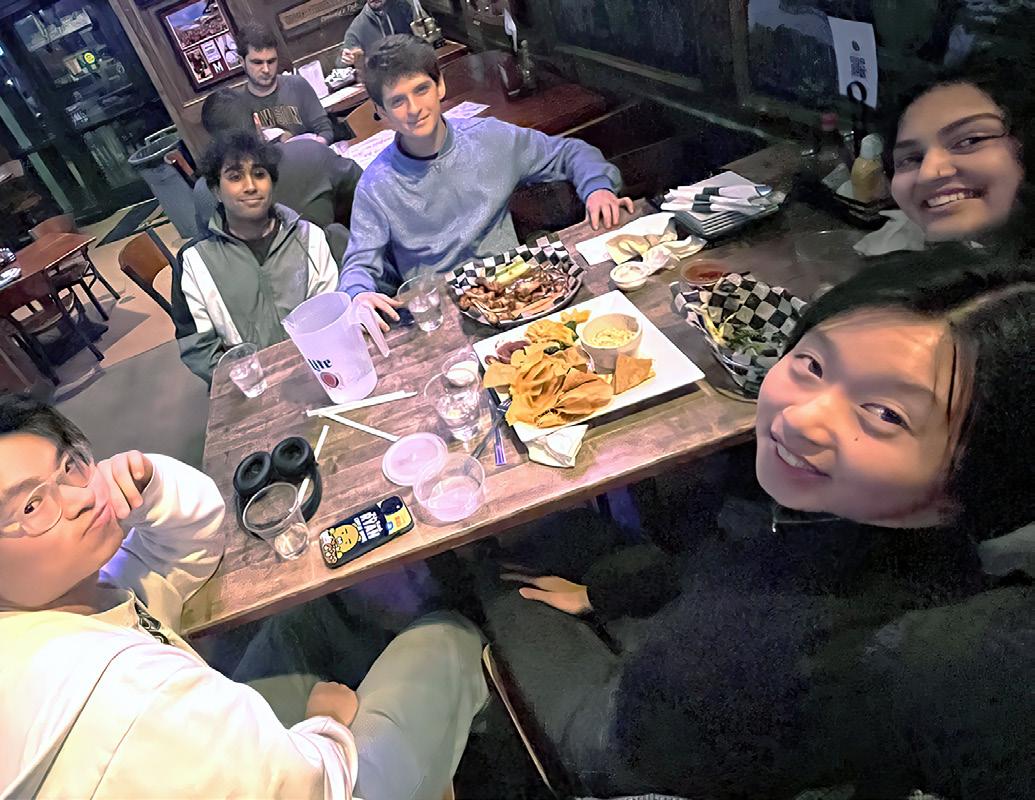
COURSE 4: BMGT/ENES490H
One of the signature QUEST experiences, the QUEST Capstone Professional Practicum allows students to work with clients for a full semester to address organizational challenges through process improvement, systems design, data analysis, and innovation. Teams work directly with clients to understand the opportunity, research the industry and relevant technologies, develop and evaluate possible solutions, and make final recommendations.
Through site visits and meetings, QUEST students completed 18 projects for 13 companies this academic year. These projects provided students with the opportunity to tackle real-world problems and provided companies with tangible benefits. Project topics included automating factories, developing sustainable packaging, improving capacity planning, and optimizing revenue flow. Student teams did an excellent job working with returning clients as well as cultivating relationships with new clients.
18 capstone projects
SPECIAL THANKS TO:
13 companies
Fall Project Sponsors
BAE Systems (Enterprise Shared Services)
CPSI
Dixon Valve
McCormick
MRAS
Thales
Total Wine & More
Tronox
Warrior Centric Health
100% of clients would like to return for another project
Spring Project Sponsors
Alpine Rewards
BAE Systems (Combat Mission Systems)
BAE Systems (Enterprise Shared Services)
Capital i
Trubridge (formerly CPSI)
PepsiCo
Tronox
Tulkoff Food Products
Warrior Centric Health

PROJECT SPOTLIGHT: Capital i -
Smart Pricing for Medical Device Servicing
Capital i, LLC is a Healthcare Technology Management (HTM) solutions company that specializes in serving hospitals by managing and maintaining their inventory of medical devices while supporting and meeting compliance requirements. Their CEO, Tony Danko, earned his MBA at the Smith School in 2015 and was excited to return to Smith to partner with QUEST students twice over the past two years.
This spring, the Capital i team, known as “Capital Q Consulting,” won the Most Outstanding Capstone Award for their project which focused on the development of an automated approach to pricing client contracts. Prior to the project, Danko manually priced each request for proposal (RFP) by manipulating data in Excel sheets and relying on his historical knowledge. After gaining a comprehensive understanding of the current pricing system and the crucial variables influencing the pricing process as well as analyzing quantitative and categorical datasets pertaining to equipment maintenance and prior transactions, the team created a minimum viable product (MVP) that utilizes a predictive model to calculate the labor cost for servicing medical devices. The development of this automated pricing tool will save Capital i over $120,000 and increase their contract capacity by 300%.
“Working on this project with Capital i was the highlight of my QUEST career,” said team member Angela McGonigle, information systems and operations management & business analytics ‘24 (Cohort 39). “I felt that this project allowed my teammates to leverage our strengths and apply what we learned throughout the QUEST curriculum to make a tangible difference for a company. I remember going into 490H nervous about my ability to succeed, but it became apparent so quickly that my team and I were well-equipped to succeed without struggle.”
Danko was also thrilled with the team’s success. “I cannot say enough good things about the professionalism, creativity, and work ethic of all the students we worked with,” he shared. “Capital i has come to rely on the QUEST team projects to give us a bump in productivity and provide a higher level of support to our clients in the healthcare delivery space.”
I remember going into 490H nervous about my ability to succeed, but it became apparent so quickly that my team and I were well-equipped to succeed without struggle.”
Angela McGonigle Information Systems and Operations Management & Business Analytics ‘24 (Cohort 39)

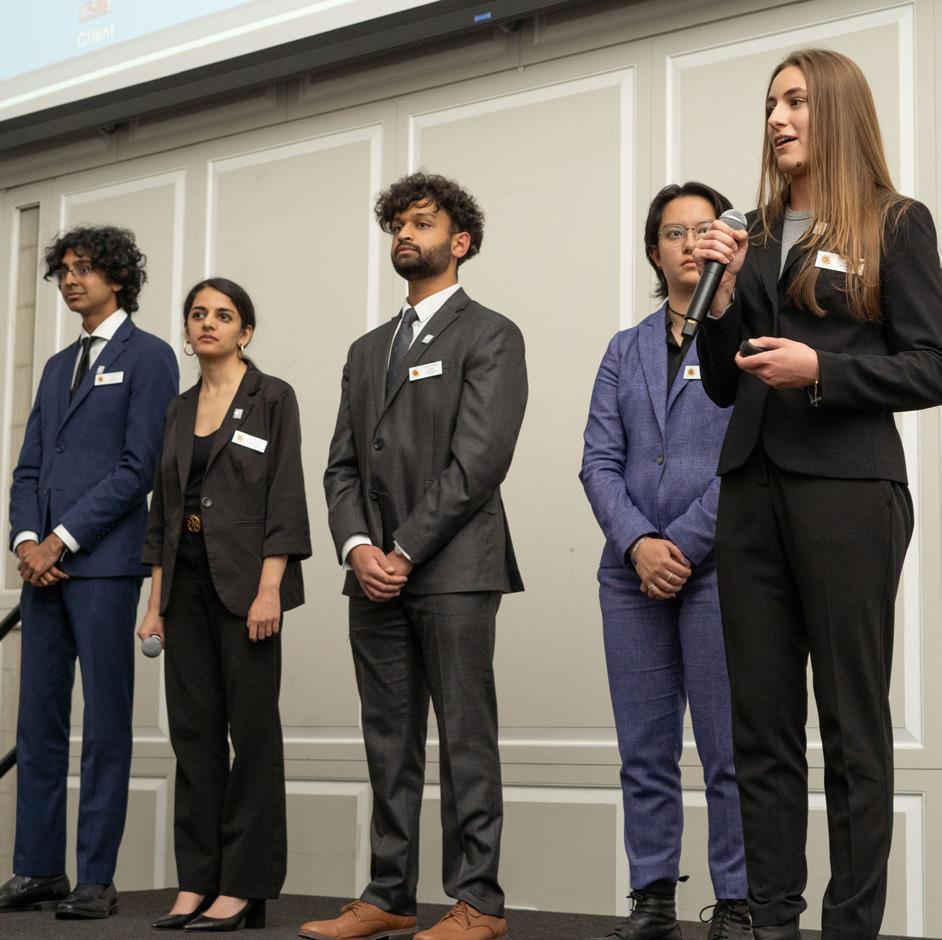
The QUEST Conference is an opportunity for the QUEST community to come together to celebrate the accomplishments of our capstone students after all the hard work and value they’ve provided to their clients all semester long.
This year, we held two QUEST Conferences, in December and May, at the Samuel Riggs IV Alumni Center. Both evenings began with an hour-long poster session where attendees browsed through the nine project posters, admiring the students’ graphic design skills and learning about the tangible impacts they’ve made. Then, each team presented on stage for 15 minutes in front of students, alumni, family members, faculty, staff, and corporate partners. Embracing the Maryland spirit, Arti Dhareshwar, computer science ‘25 (Cohort 39), was fearless when presenting on stage. “If there’s one thing I know I can do, it’s present, and that’s all thanks to QUEST!” she said.
Congratulations to all of our capstone students on your hard work this year!





In addition to the required courses, QUEST students take at least one elective course during their time in the program. These courses complement the curriculum and allow students to meet and work on teams with students from other cohorts.
This year, 29 QUEST students participated in our winter study abroad elective to Tokyo, Japan and Seoul, South Korea. The 10-day trip was action-packed with company visits, cultural activities, delicious food, and even karaoke! The course focused on analyzing how countries rooted in rich traditions and cultures have become economic giants, producing some of the world’s most advanced technology. The group visited a wide variety of companies, some with big names such as Nissan, Samsung, and IAG, and some smaller operations that were just as impressive, such as a startup working on restaurant accessibility in Tokyo, a biotech firm creating video games for patient rehabilitation, and a satellite company focused on sustainably cleaning up space junk. When they weren’t at site visits, the students were immersing themselves in cultural activities like a sumo wrestling demonstration in Tokyo and a night food market tour in Seoul. For their project, student teams took what they learned during the trip to create a plan for launching an innovative product in either the US or East Asian market.
Arti Dhareshwar, computer science ‘25 (Cohort 39), reflected, “The study abroad trip was one of the most rewarding, well-rounded and unique experiences I have had in college. Through company site visits, I was pushed to analyze and further comprehend the long-term implications of business decisions and the applications of my education to real-world examples. Also, with the time allotted for cultural events or our own exploration, my eyes were opened to a new world of possibilities through the beauty, serenity, and abundance of flavor in both Japan and South Korea. To sum it all up, my study abroad experience was unlike any other, and I have truly grown on both a professional and personal level.”
Regarding the company site visits, Nataraj Shivaprasad, product management ‘24 (Cohort 37), said, “It was especially cool to make connections with real businesses and innovators abroad like the Japanese travel-tech startup TakeMe. I stayed in touch with them as a weekly advisor and even had the opportunity to set up a business relationship between the startup and the agency that organized the whole trip. I was surprised to discover the lasting impact the trip had on my career interests and relationships.”
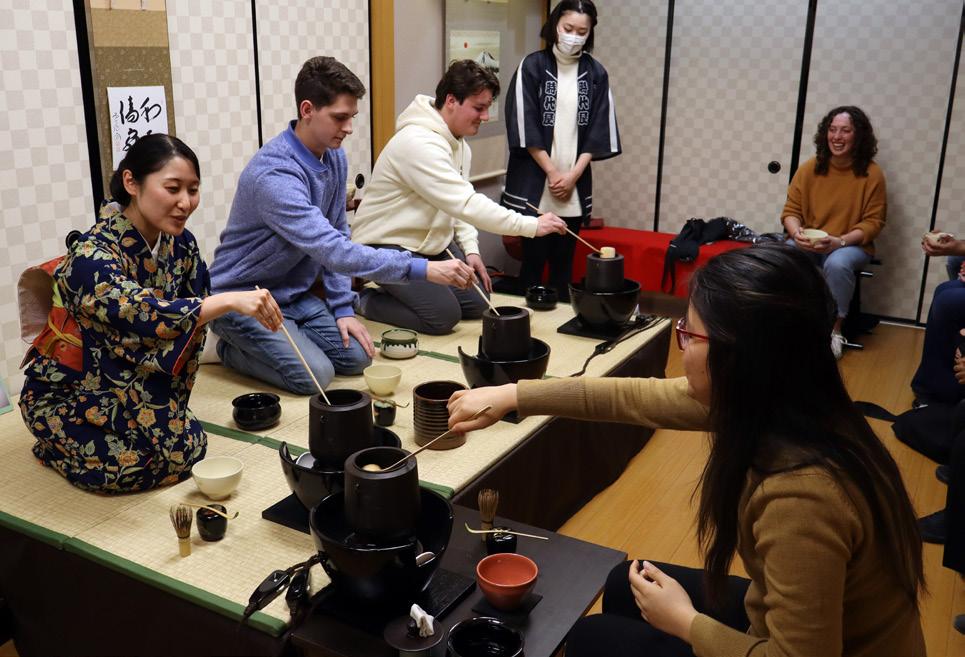



In addition to study abroad, we offered the following QUEST electives this year:
BMGT/ENES397
Mentoring Multidisciplinary Teams
Students practiced essential skills for mentoring and coaching teams in our QUEST introductory course, and in the process, strengthened their knowledge of design and quality techniques.
BMGT408C
Quality Web Development in Business
Students of all levels of experience were introduced to the elements of web development – from technical skills like HTML and databases to business concerns like how to work on a software engineering team.
BMGT438N Introduction to Product Management
Students learned about the discipline of Product Management through analysis of tech products across industries, guest lectures from alumni who are product managers, and the opportunity to conceive a product to monetize an unmet need.
BMGT/ENES491
Scoping Experiential Learning Projects
Students cultivated relationships with new and current corporate partners and prepared project scopes for QUEST courses. Students were able to visit companies such as Spectrum Foods and Tulkoff Food Products to learn about business operations and discuss future project possibilities.



Our seven QUEST student organizations provide ample opportunities for students to bond outside of the classroom through events, activities, and more.
The student organizations include QUEST Creative, QUEST Corporate, QUESTPress, QUEST Recruiting, QUESTServes, QUEST Social, and QUESTech.



Over 130 QUEST alumni engaged with the program this year in various capacities.
Alumni participated as project sponsors and site visit hosts for their companies, judges for class presentations, workshop leaders for social and professional events, mentors for current students, application readers for incoming students, guest speakers in our product management elective, and more. Thank you to all of the alumni who gave back to QUEST this year and continue to make our community so special and unique. To learn more about alumni involvement opportunities, contact Jessica Roffe, assistant director of the QUEST Honors Program, at jroffe@umd.edu
48
alumni mentored QUEST students through QUEST Corporate’s mentorship program
18
alumni represented their companies at our Fall Networking Event
32
alumni volunteered in our capstone course, providing invaluable advice and feedback to our student teams
15
alumni reviewed applications for our incoming cohorts
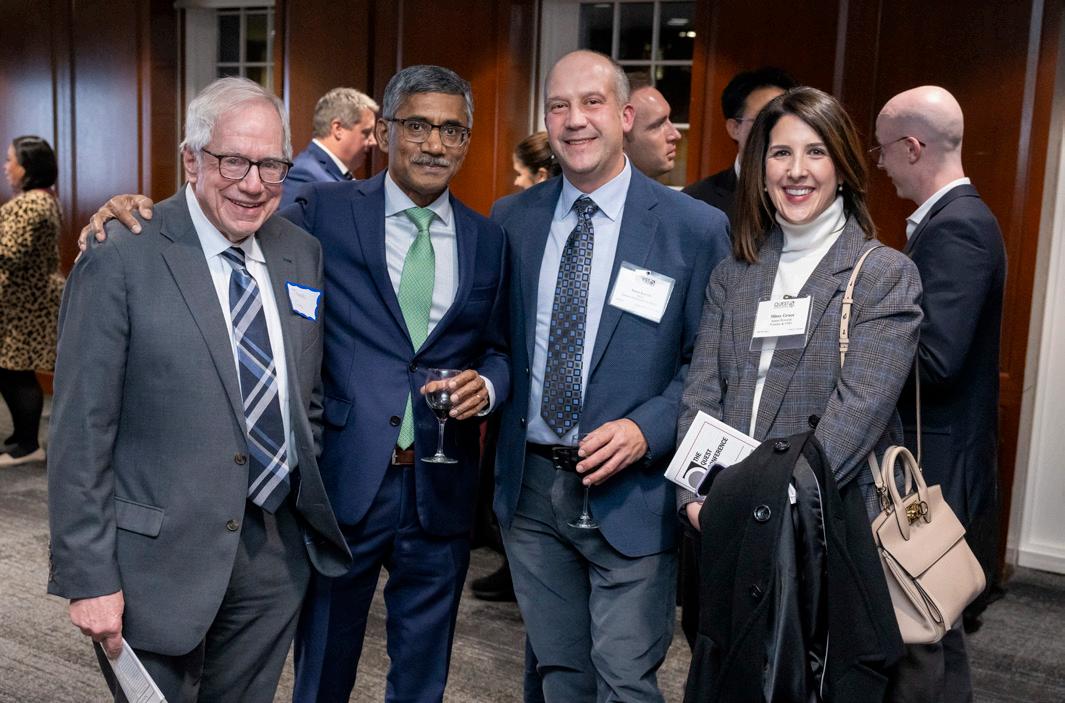

11
alumni provided guest lectures in a QUEST course


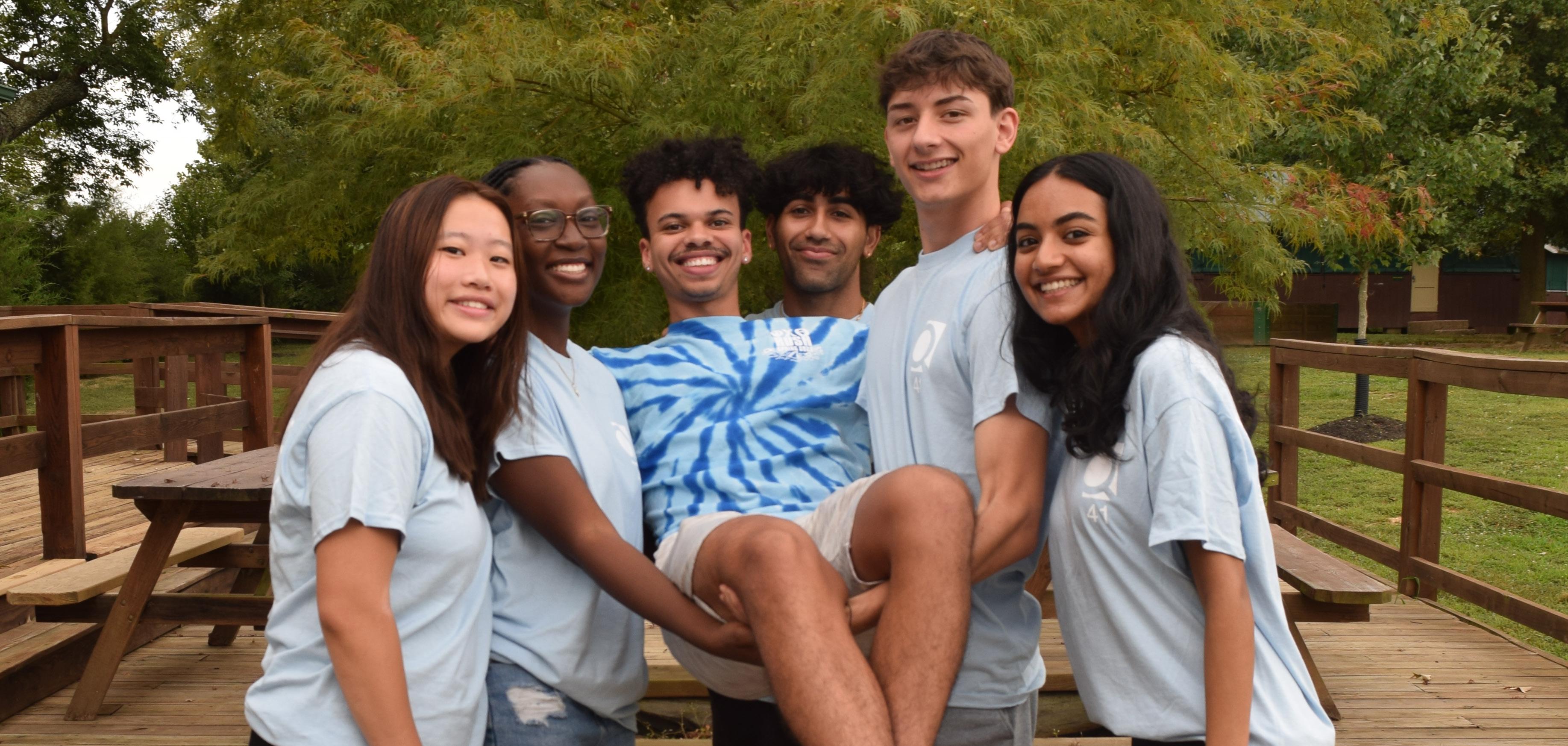
Sophomores and Juniors in Cohorts 39, 40, 41, and 42:
SUMMER PLANS
Participating in summer internships
Continuing coursework or academic research
Working full time
Other 172
QUEST’s sophomores and juniors always have exciting summer plans. With 85% of sophomores and juniors participating in summer internships, it is safe to say that QUEST students love to stay challenged, gain professional experience, and explore different career paths.
QUEST strives to help students find the perfect fit for them, whether it's through the fall QUEST Networking Event, corporate site visits, alumni panels, or mock interviews. In fact, over 58% of sophomores and juniors stated that QUEST helped them obtain their summer internships.
Jack Collier, finance and information systems ‘25 (Cohort 40), is working as a government contracting consultant at Baker Tilly this summer. Before his first interview, he looked at the QUEST Directory to see which QUEST alumni work at the company and decided to reach out to one of them. The alumna gave him great advice about the hiring process and even ended up conducting one of his interviews. Collier said, “The networking opportunities QUEST gives its students directly improved my chances of getting the internship. Being in the QUEST community allows me to network with people who are super smart, friendly, and happy to help out!”

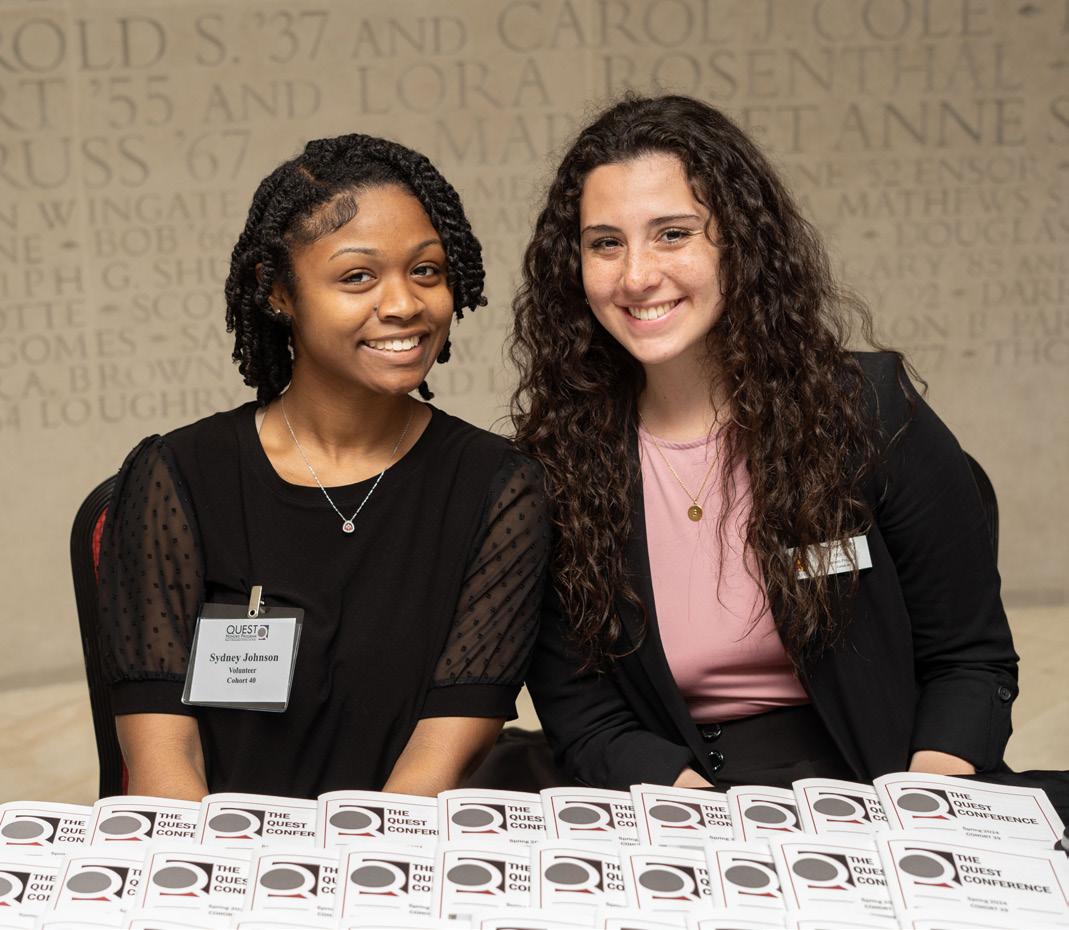
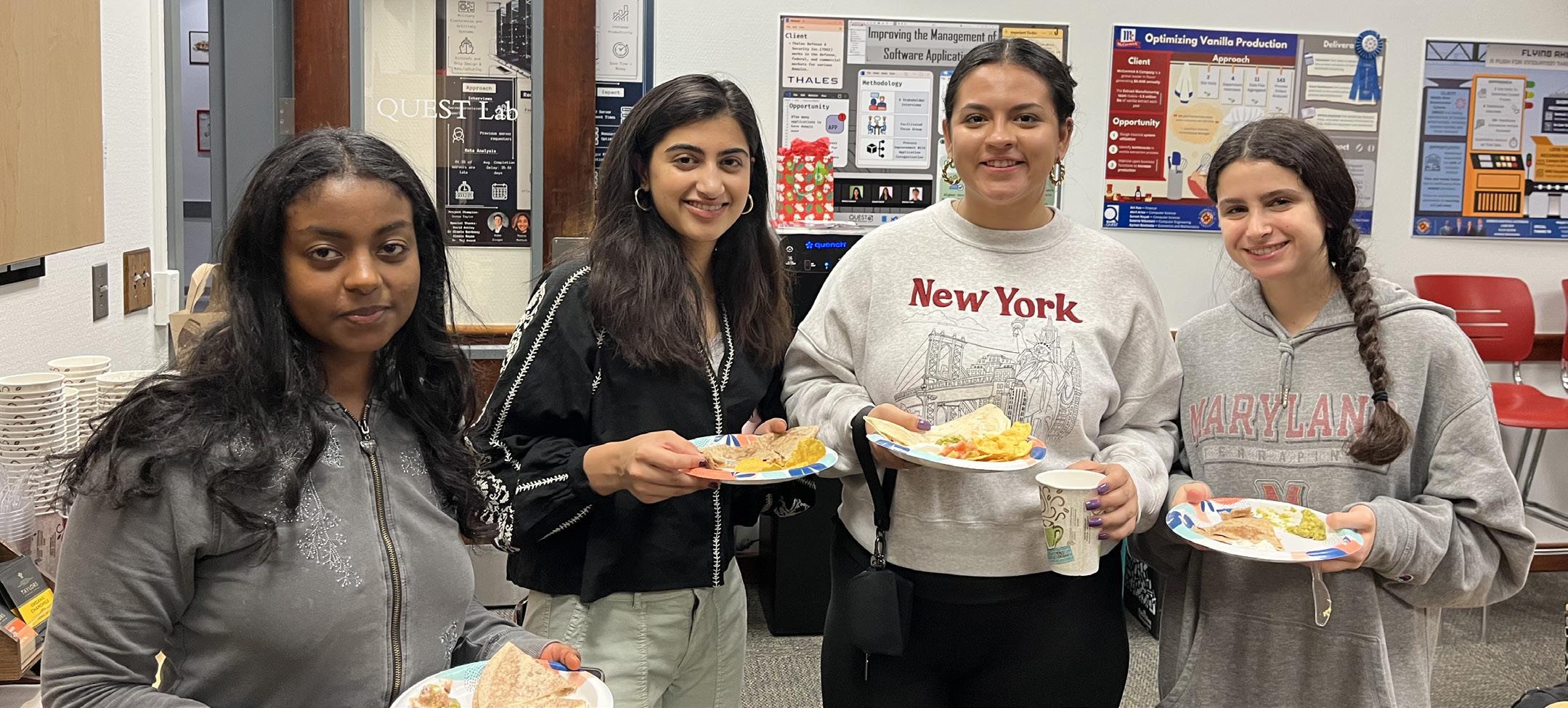
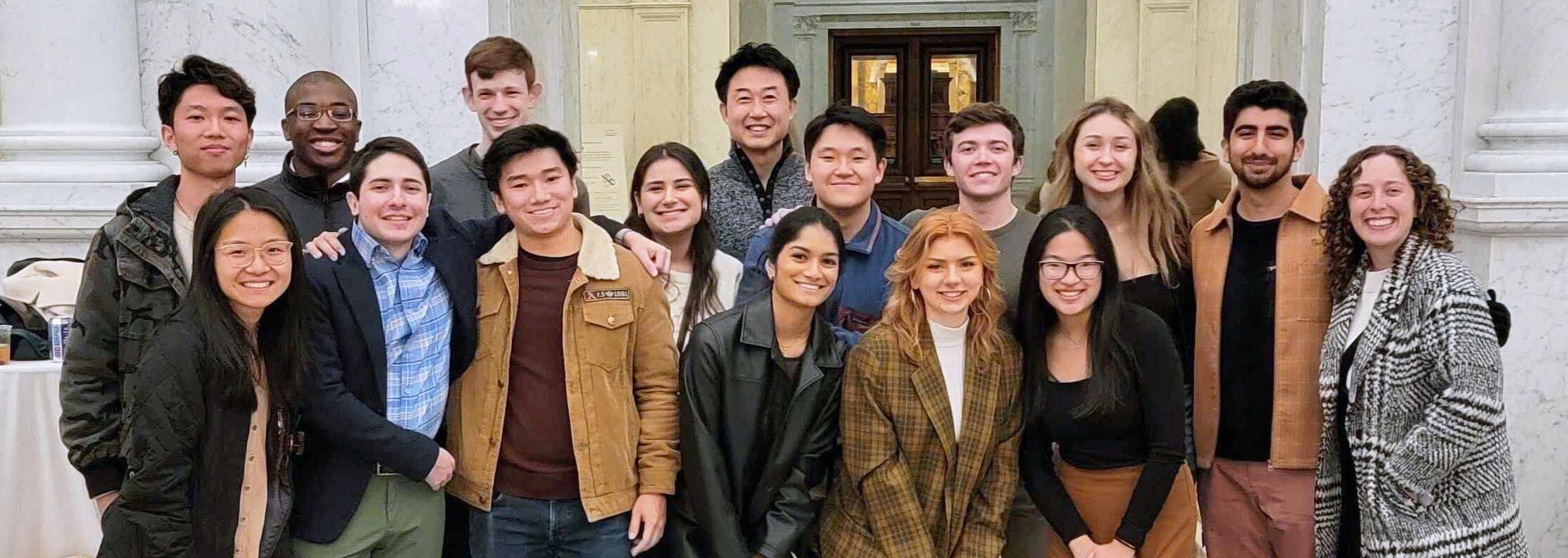
89 seniors graduated from QUEST this academic year with bright futures ahead.
At the end of the spring semester, we were able to honor our seniors with an awards and medallion ceremony on campus, followed by a senior send-off celebration in D.C. We look forward to staying in touch as Cohorts 37 and 38 become QUEST alumni.






QUEST was one of the most formative experiences in my college career, both because it helped me grow so much professionally and because I met such good friends through the program.”
Annushka Aliev
Civil
& Environmental Engineering ‘24 (Cohort 37)
QUEST was a transformative experience. I had set a goal for myself when I entered UMD as a freshman: to be a better speaker, more confident, well-equipped, and impactful. I'm happy that QUEST delivered on all those goals for me.”
Zafir Naseem Neuroscience ‘24 (Cohort 38)
QUEST made my college experience. It provided me with experiences and growth that I wouldn't have had otherwise. It truly set me up for success, and the people pushed me to want to be better everyday.”
Abby Wexler Finance and Operations Management & Business Analytics
‘24 (Cohort 37)
The QUEST Honors Program relies on individual and corporate gifts to support its curriculum and special programs and events. All funds raised provide direct support for students, academic programs, and co-curricular experiences. Make a gift today at go.umd.edu/QUESTfund. To discuss unique giving partnerships, please contact Jessica Roffe, assistant director of the QUEST Honors Program, at jroffe@umd.edu
Volunteer
QUEST welcomes alumni and parent participation in our program. If interested in attending or hosting events, visiting a class, or creating a company partnership, please contact Jessica Roffe, assistant director of the QUEST Honors Program, at jroffe@umd.edu.

QUEST would like to express its sincere gratitude for the generous contributions of the following donors this school year:
Carolyn Andres
David Ashley
Joseph J. Ayoub
Mark J. Baumgardner
Jenna M. Beglin
Daniel C. Ben-Or
Vidya Brown
Stacey Carolan
MacKenzie W. and Elizabeth M. Cooper
Rachel L. DiDonna
Suzanne Fitzsimmons
Cathy Flynn
Kalika Fortman
Ebony T. Fullwood
Thomas M. Gardner
Ilan P. Gold
Philippe E. Gouel and Megan DeFauw
Robert Half
Shirley Han
Brian L. Horick
Luxi Kanazir
Kenneth and Anne Katz
Nitin Khapre
Kylie G. and Jason M. King
Joseph L. Kozlowski
Manas H. Kulkarni
Stephanie Langbein
Daniel J. Laurence
Ling Li
Joel M. Liebman and Caitlin J. Greenbaum
Stuart D. Liebman
Brian Marquardt
Charles D. Marquardt
Todd A. Metcalfe
Bryan A. Prince
Brad Rosenthal and Cheryl Katz
Brett A. Schwab
Drew M. Stasak
Brooke L. and Matthew L. Supple
Leonid A.Velikovich
Teresa Weirich
Connor S. Welch
Rebecca D. Winner
Suwei Zhao
Eric W. Zinnikas
QUEST Corporate Partners offer professional development opportunities for our students, enhance student learning through class project partnerships, and provide important financial support for the program.
We would like to express our sincere gratitude to the following corporate partners for their generous time and contributions to our community this year:





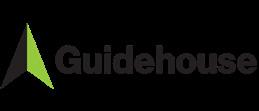





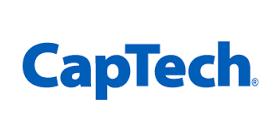
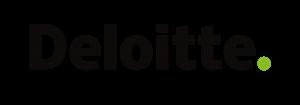






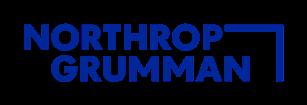





QUEST welcomes the opportunity to partner with organizations interested in contributing to student learning through projects and/or recruiting talented undergraduate students in business, engineering, and science. To learn more, visit go.umd.edu/questpartnerships or contact Jessica Roffe, assistant director of the QUEST Honors Program, at jroffe@umd.edu













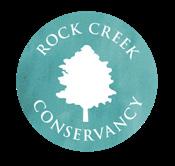



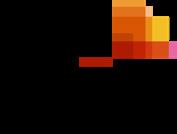


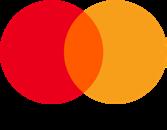






7699 Mowatt Lane
1113 Van Munching Hall
University of Maryland
College Park, MD 20742-1815



